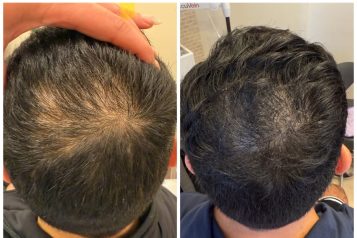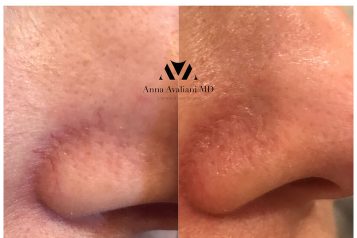Dr. Ella Faktorovich is among the leading ophthalmologists practicing in San Francisco. As an innovator in the development of advanced vision correction treatments, she has achieved worldwide acclaim for her contributions in the field of refractive surgery. Dr. Faktorovich founded Pacific Vision Institute more than twenty years ago. Under her leadership, Pacific Vision Institute is the first in the Bay Area to bring the industry's newest diagnostic and treatment technologies for LASIK and Cataract Surgery patients. Dr. Faktorovich is the founder and remains the Chair of the Annual San Francisco Cataract, Cornea, and Refractive Surgery Symposium dedicated to the continuing education of the Bay Area eye doctors in refractive surgery and other aspects of advanced patient eye care. She is a recognized leader in this groundbreaking vision correction technique, with her definitive textbook used in educating eye surgeons around the world.
 Photo Credit: Shutterstock
Photo Credit: Shutterstock
An implantable collamer lens (ICL) is an ultra-thin layer of lens collagen that is implanted permanently into the eye to treat a range of vision concerns, including nearsightedness (myopia) and blurry vision at all distances (astigmatism).
ICL surgery places the artificial lens between the eye's natural lens and the iris. The lens helps the eye to properly refract the light on the retina, producing clearer vision. It can also reduce or even eliminate the need to wear glasses or contact lenses. To get a full summary noting the pros vs. cons of the newly-FDA-approved implant, Haute Beauty sat down with Haute Beauty expert Dr. Ella Faktorovich. Here's what she shared:
Pros of ICL
May be an alternative to LASIK. ICL can be used as a possible alternative for people who can't get LASIK.
Ideal for severe nearsightedness. ICL can be used to correct severe nearsightedness that can't be addressed with other surgical eye procedures.
Can achieve permanently improved vision. In many cases, ICL surgery permanently reduces your dependence on glasses or contact lenses.
The ICL lens is less likely to cause dry eyes. ICL is ideal for patients who have conditions that predispose them to dry eyes
Short recovery period. Recovery from ICL is usually fast, similar to LASIK.
Removable. ICL is a permanent procedure, but the lens can be removed. While this is rarely needed, if your prescription changes significantly, the lens can be replaced with your new prescription.
Short procedure time. The ICL surgery takes about 30 minutes.
Cons of ICL
ICL surgery isn't for everyone. While this is an effective procedure, ICL surgery may not be the right choice if you're younger than 21 or over 45 or have other disqualifying points, such as chronic systemic inflammation.
If performed incorrectly, the complications can be severe. In the hands of an inexperienced surgeon, an oversized ICL can be placed, or the ICL may be incorrectly positioned. This can increase pressure in your eye and lead to glaucoma, and if left untreated, it can ultimately result in vision loss.
For more information, visit Dr. Ella Faktorovich's social media:






















